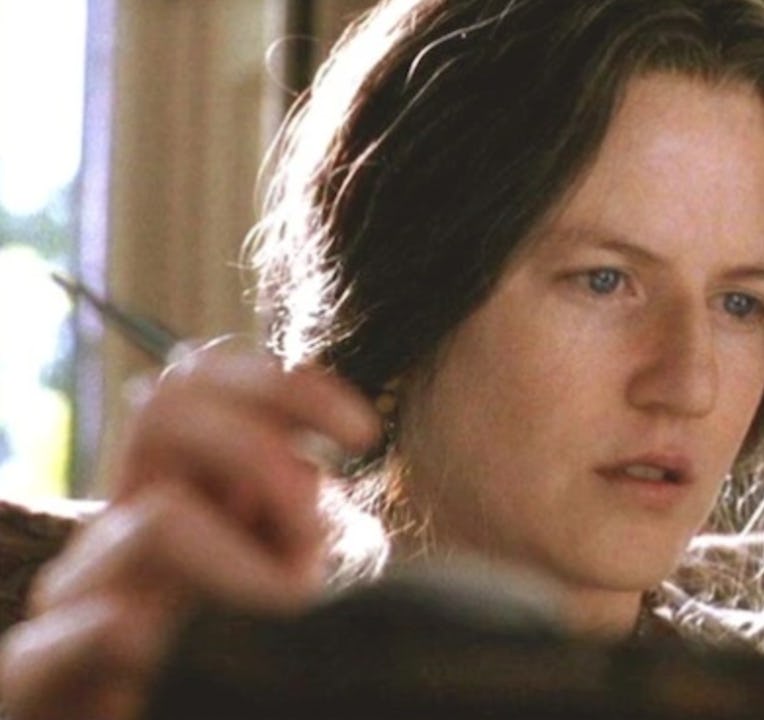The Joy of Writing by Hand
Drowning in screen time during the pandemic, I decided to experiment with pretension.

Last year, while scrolling through the quiet, comforting halls of Tumblr, the last bastion of sanity on the internet, I came across an image of an unpublished poem handwritten by Marilyn Monroe. When she died, Monroe’s belongings were left to Lee Strasberg, her acting teacher, who later passed them to his wife, Anna, who later discovered various writings, including the poem, that became a book called Fragments: Poems, Intimate Notes, Letters. The poem begins, “Only parts of us will ever/ touch only parts of others.” Like the other weepy denizens of Tumblr, I was primed to respond to the image with slightly condescending intrigue; but what struck me most was not just the content of Monroe’s poem but her handwriting itself. Written on lined paper, in pencil, her script looked like the samples of proper cursive I was made to copy in Catholic school — uniform double L’s, large, looping O’s. Other entries, like a page from her 1955-1956 diary, show diametrically opposed characters, chaotically scrawled in print. “I’m finding that sincerity and trying to be as simple or direct as (possible) I’d like is often taken for sheer stupidity.”
In the New Yorker, Jenny Hendrix wrote of the collection, “One of the more remarkable things ‘Fragments’ does is give us Marilyn Monroe the way we’ve always wanted her: as someone, finally, have-able.” Possessing a piece of someone through their words seems more possible when those words are meant for only one person, whether that be in a diary or a letter. It’s not so much the having of a person as it is of a private moment in time — the in-the-moment editorializing of one’s racing thoughts.
In high school and college, I had the very original and interesting habit of writing handwritten letters to friends; tons and tons, for any reason, just to then have something to look forward to in the mail. During quarantine, drowning in screen time and desperate for any reminder that I had a physical form, I took up writing by hand once again. This time, it was less about keeping up correspondences and more about finding reasons not to use my phone, where most of my thoughts and ideas go to die.
The process of re-committing to writing by hand was disorganized. I’ve never been a disciplined notebook keeper, and, until very recently, I wrote my stray thoughts on Post-It notes and scrap pieces of paper that would inevitably get lost or forgotten. I now have a tiny, paperback dot-grid notepad that sometimes still gets passed over in favor of whatever is closest to hand. Even when I write letters, I often do it on notecards rather than normal paper. I go back and forth between being precious about these kinds of things and not caring at all — it’s the act of handwriting itself that brings me satisfaction.
For one, your memory does get better, vindication for every teacher ever. Writing forces you to slow down. It’s impossible to do anything else but focus on what you’re putting down at that moment, something that otherwise feels increasingly rare. Sometimes, your hand really fucking hurts after a while and it’s nice to have a physical reason to pause, step back, think about what you’re putting down and make the agonizing decision to start all over.
You start to notice the small details as well — flourishes or misspellings or turns of phrase you wouldn’t normally use in a text, parts of your own personality that might surprise you. This goes for your penmanship too. I get glimpses, however small, into my past moods and emotional states when looking at old notes, letters, or even scribbled down book titles and wifi passwords. (Similarly, Monroe’s ephemera in Fragments show a frenetic imagination at work, as well as an ebb and flow between confidence and insecurity, certainty and doubt. )
If you’re lucky, you get to witness passed-down traits too. My handwriting is shockingly similar to my dad’s, both of us preferring to write in capital letters with the same boxy, rightward slant that makes them look like unfolded paper clips. Going through old notebooks, bracing myself for illegible, juvenile penmanship, I sometimes find a surprisingly stable, recognizable script instead. What I was trying to say then or why is often less certain; the things I wrote four or five years ago often seem like artifacts written by someone else.
That’s part of the appeal though, why I kept finding excuses to write things down. Later on, it’s sometimes a puzzle figuring out what the significance of a certain phrase or word or date was to you, even if it was from a week ago. It’s an uncertainty that feels oddly fun. “I wrote this down for some reason, I wonder if I can remember what that was.” The pandemic has made our lives only more virtual, which does make certain things easier to remember — date stamps on photos and emails, tracked changes in Google Docs, metadata accompanying every correspondence. It’s refreshing to interact with writing that exists outside of those parameters; to scrutinize the way it was written, on what kind of paper or errant surface, with what kind of instrument and pressure, and when, and to fill in the blanks imperfectly when it’s not clear. It’s comforting to engage with bits of my past that contain more than just information.
Nicholas Russell is a writer from Las Vegas. His work has been featured in The Believer, Defector, Reverse Shot, Vulture, The Guardian, NPR Music, and The Point, among other publications.